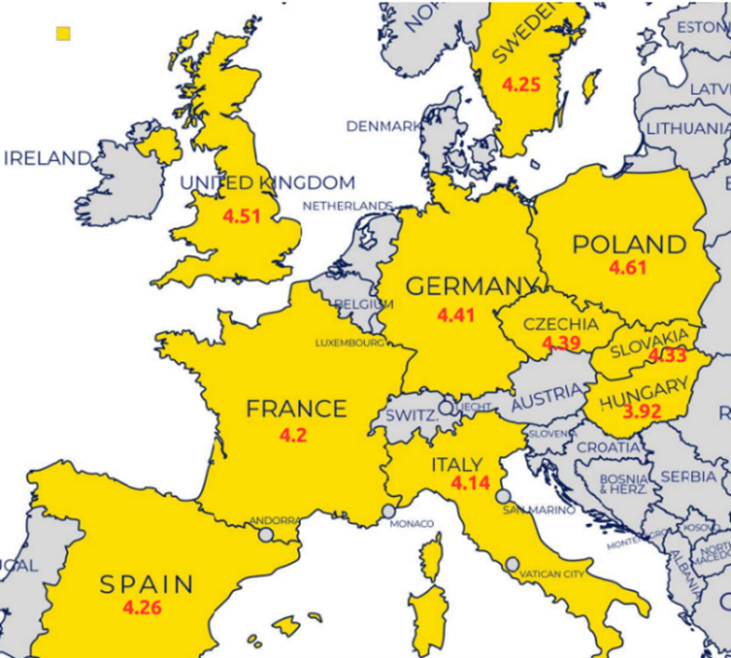Nine out of ten Europeans consider criticism of its Financial health And almost eight out of ten acknowledges that you must improve your training to reinforce it, according to the report ‘Financial Health of Eu Citizens – Quantitative Study’ presented by EFPA (‘European Financial Planning Association’) on the occasion of its 25th anniversary.
The study, prepared in collaboration with Better Financeanalyze the financial habits of 14,318 citizens from 12 European countries, offering a complete analysis of how they manage their family budgets, their savings and investments and their retirement plans, also reflecting on the role of financial advisors in Europe.
According to the European Map of Financial Health, prepared by EFPA, the Average score of European citizens is 4.3 out of 7, although there are “significant differences” between countries.

The data reflect that Poland (4.6), United Kingdom (4.5) and Germany (4.4) lead the classification, while Slovakia (4,3), Sweden (4,2), Spain (4.2) and France (4,2) occupy intermediate positions. On the opposite side, Italy (4,1) and Hungary (3,9) have greater financial vulnerability.
The analysis – whose presentation took place within the framework of the Conference ‘Financial Education and Professional Advice: promoting the trust, protection and well -being of the citizens of the EU’ – also states that financial training is “a shared need throughout Europe.”
In that sense, 74% of respondents manifest their intention to expand your financial knowledgeespecially in matters such as investment, pensions or taxation.
However, the entity emphasizes that the practice evidences “important deficiencies” in the management of the personal economy by respondents, since “only 11% know their income precisely” and “just 9% lead a detailed record of their income.”
Most used investment products: funds, shares and ETF
On the other hand, the report emphasizes that Europeans “maintain a preference marked by Low risk positions “which “limits the profitability of its heritage” and “delays long -term planning.”
“More than half (51%) retains their cash savings or current accountswith only 36% saving regularly. Although 78% do manage to do so occasionally, the differences between countries are notable: Czech Republic reaches an 86% sporadic savings rate, compared to 65% in Hungary, which is the lowest level among all the countries of the continent, “says EFPA.
With regard to investment products, the study remarks that the most frequent are the funds, shares and ETF (22%), followed by cryptoactives (10%). For its part, real estate investment is barely 6% in Europe as a whole.
On average, 58% of Europeans still resort to Banks, Insurance and Advisors Networks that charge commissions. The analysis remarks that this model is especially popular in Italy (68%) and France (69%), while it is less extended in Hungary (44%) and Czech Republic (47%).

In contrast, 21% of Europeans opt for advisors who combine commission and fees, while the ‘Fee-Only Advisors’ are used by 17% of respondents, reflecting their “strong growth capacity” and the “need” that their figure is “reinforced” in European regulations, while 18% resort to digital platforms.
The Czech Republic leads the use of independent advisors (34%), compared to 3% in Germany. Instead, Germany stands out for the use of online platforms (31%), well above France (8%) and Italy (10%).
“This report clearly reflects that financial health is not only a matter of income, but of habits, planning and access to quality advice. The disparity between countries shows that, when citizens have more educational tools and a solid planning framework, the results improve significantly,” said EFPA president, has indicated EFPA, EFPA, Emanuele Carluccio.
Carluccio has asserted that, from EFPA, its commitment is “to continue promoting a stronger and more accessible financial culture throughout Europe”, because “having adequate knowledge and guidance not only improves money management, but also provides tranquility, confidence and long -term well -being.”


